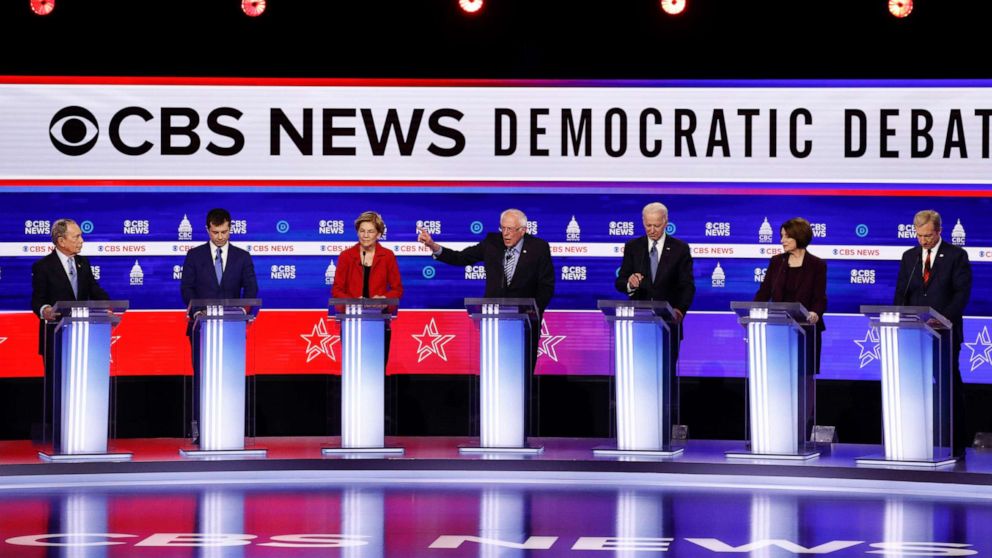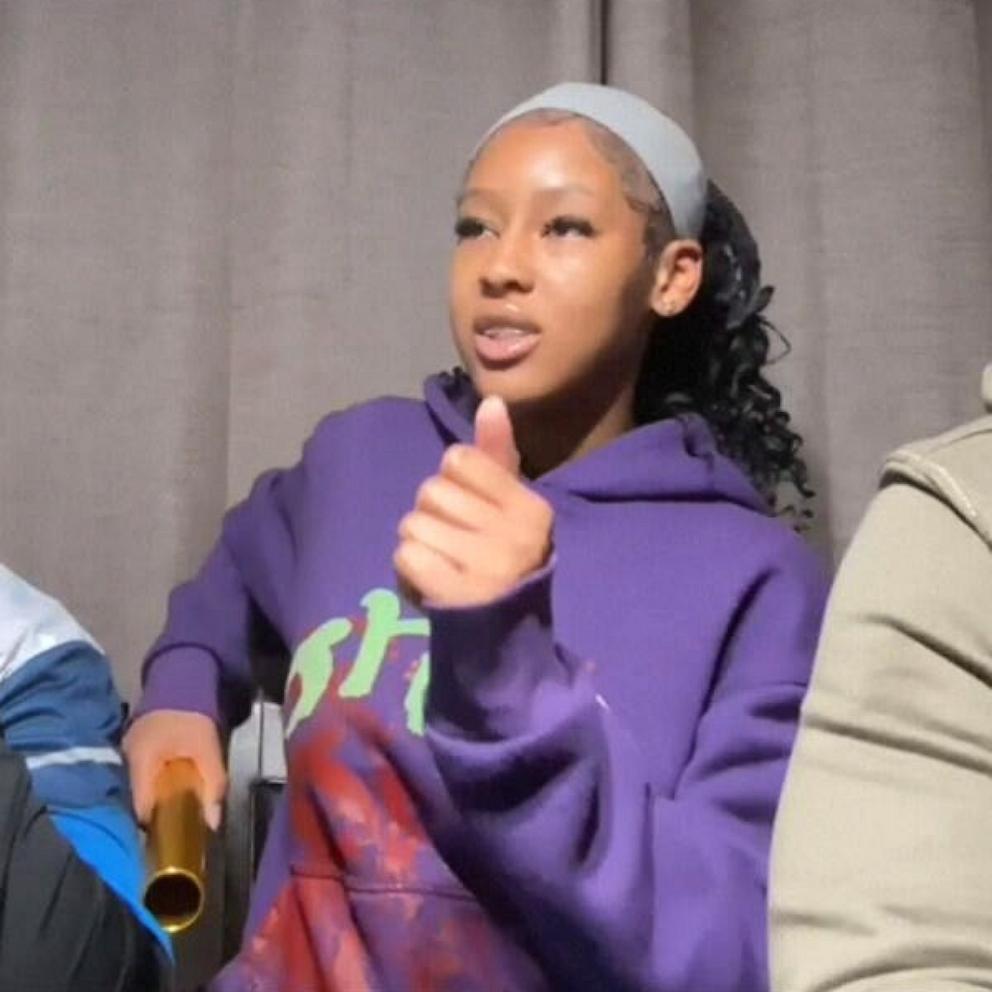Recent debates give emboldened Bernie Sanders electability edge: POLL
Vermont Sen. Bernie Sanders, the party's new front-runner after consecutive victories in New Hampshire and Nevada, is considered the strongest contender among an engaged Democratic base of debate watchers to take on President Donald Trump in November, according to a new ABC News/Ipsos poll.
The poll conducted by Ipsos in partnership with ABC News, using Ipsos' Knowledge Panel, asked Democrats and Democratic-leaning independents, who watched any of either of the presidential debates in Las Vegas last week and in Charleston, South Carolina, earlier this week, about which of the candidates has the best chance of defeating Trump and whether the debates are useful in helping them decide who to vote for and beneficial to the party ahead of the impending general election.
After seeing either of the ninth and tenth debates, 34% of Democrats and Democratic-leaning independents said Sanders has the best chance of defeating the incumbent president. The next closest competitor is former Vice President Joe Biden, with 25%, followed by former New York City Mayor Michael Bloomberg, 15%, and Massachusetts Sen. Elizabeth Warren, 11%.
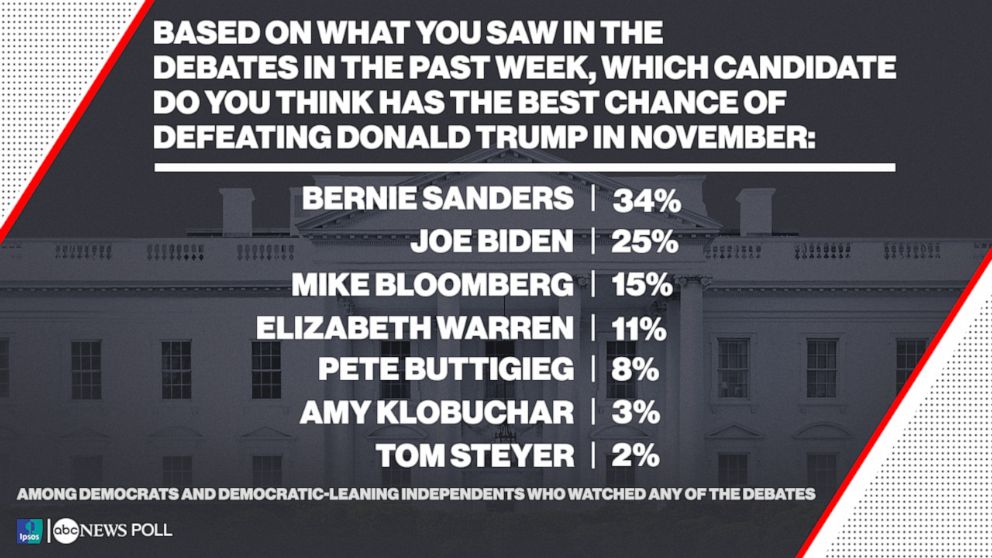
In the South Carolina debate, which was marked by feisty arguments and chaotic exchanges, most of Sanders' rivals, including a more aggressive Biden, took aim at him in an effort to undercut his momentum ahead of Super Tuesday.
Both debates also featured fierce clashes between Bloomberg and Warren, with the billionaire making his debate debut in Las Vegas, despite not competing in the state caucuses, and the former Harvard professor tangling with him largely over nondisclosure agreements with some of the women he employed over the years and allegations of crude and sexist comments directed at his female employees.
Of the top two candidates, those under age 50 were much more likely to say Sanders is the strongest candidate to face Trump, and Biden was considered best positioned by those over 50, but his support is more stratified across the age groups.
Among the four in 10 Democrats and Democratic-leaning independents who watched any of the debates, considered to be some of the most engaged voters in the party's electorate, one-third said the debates worked in Trump's favor, and weakened Democrats' chances of defeating the president in the general election.
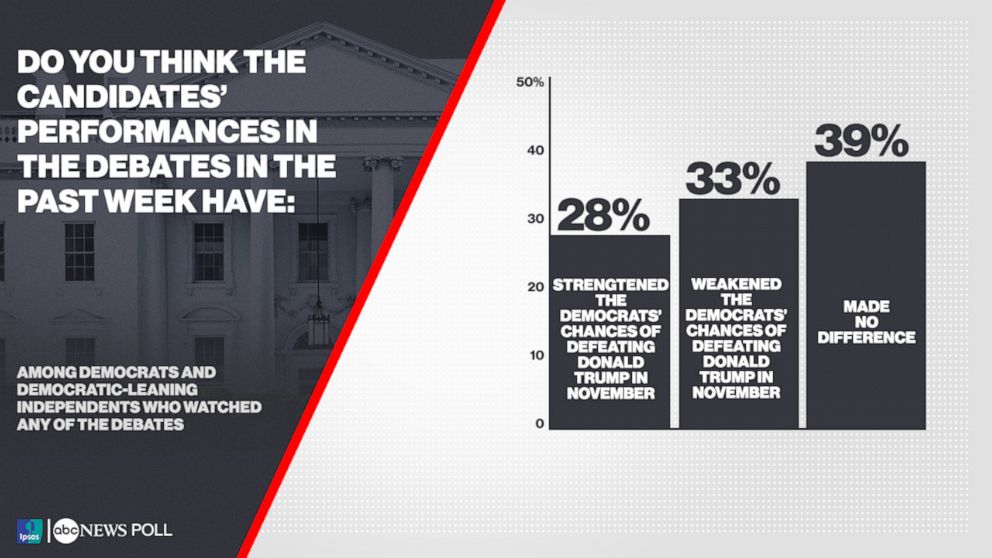
Only 28% said the debates strengthen the party's chances, and another 39% said the debates made no difference in the potential outcome of November's highly-anticipated election.
Among those who said the debates strengthened Democrats' chances, 60% thought the party's current front-runner, Sanders, had the best chance of defeating Trump. Meanwhile, supporters of the candidates occupying the moderate lane, such as Biden, Buttigieg and Bloomberg, were more likely to be anxious about the effect the debates had on Democrats' chances of defeating the president.
Forty-six percent of Democrats and Democratic-leaning independents who think Biden is the best candidate to face-off against Trump believe the debates weakened Democrats' chances in November.
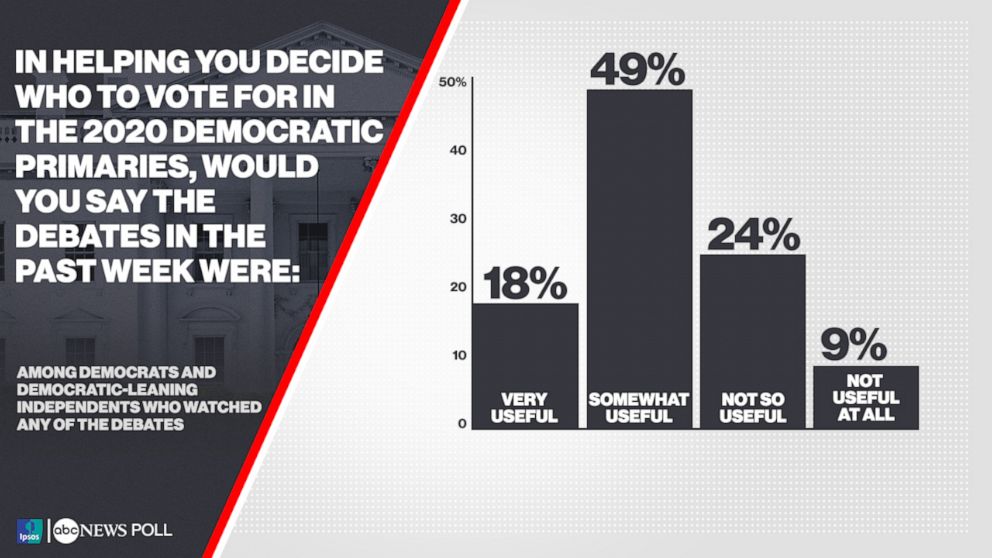
A total of 67% said the debates, sanctioned by the Democratic National Committee, were useful, compared to one-third of Democrats and Democratic-leaning independents who believe they were not. Only 18% said they found them to be very useful, and more non-whites, 27%, found the debates very useful, compared with 9% of whites.
Only two more debates are expected this cycle, with the next matchup slated for Sunday, March 15, in Phoenix. The rules for qualifying have yet to be announced.
This ABC News/Ipsos poll was conducted by Ipsos Public Affairs‘ KnowledgePanel® February 26-27, 2020, in English and Spanish, among a random national sample of 639 Democrats and Democratic-leaning independents. Results among Democrats and Democratic-leaning independents have a margin of sampling error of 4.5 points, including the design effect. Results among those who watched the recent debates have a margin of sampling error of 6.5 points. See the poll's topline results and details on the methodology here.
